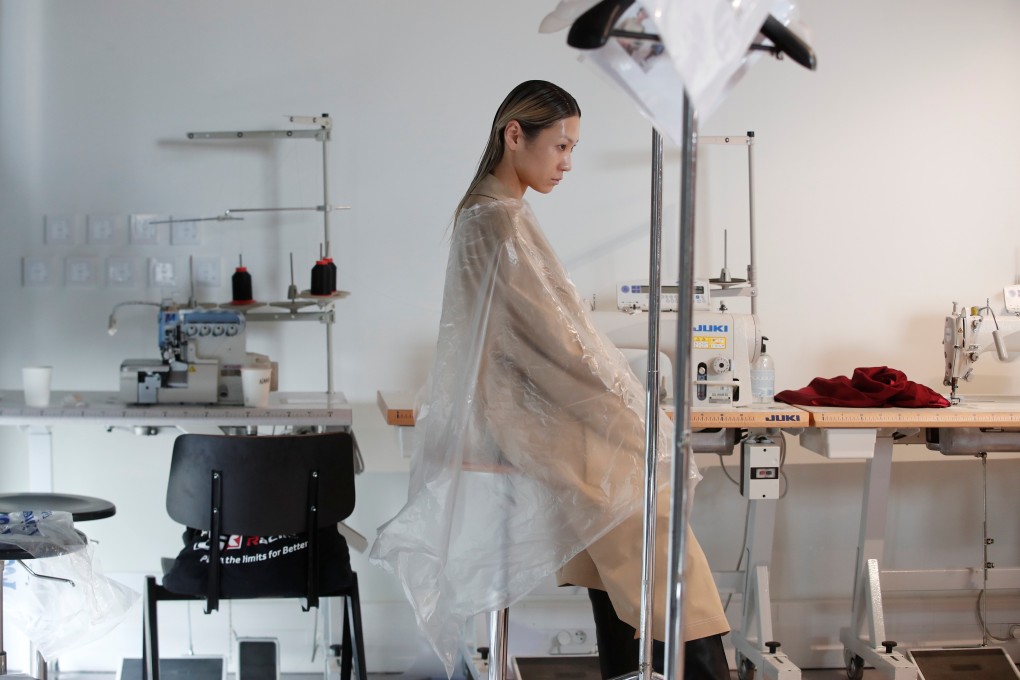Advertisement
Modelling during Covid-19 times is no easy task, say models hit by travel restrictions, online fashion weeks
- Models are having to find new ways to keep their careers afloat, with the lack of physical fashion weeks in particular depriving them of the best opportunities
- ‘It’s much harder to get recognised’ without them, one model says
Reading Time:2 minutes
Why you can trust SCMP

“What fashion week?” says French model Christelle Yambayisa, only half-joking.
Normally, at this time of year, the world’s fashionistas would have descended en masse on Paris for the latest womenswear collections. Instead, the whole thing has been relegated to the internet once again because of the pandemic, and models are having to find new ways to keep their careers afloat.
Yambayisa managed to keep busy during the first lockdown a year ago, with brands sending her clothes and her boyfriend shooting the photos in their flat.
Advertisement
“It was a bit scrappy, but it worked,” she said.
Then, as things opened up temporarily over the summer, she found an unexpected advantage, since travel restrictions meant there were fewer black models around from the United States and Britain.
Advertisement
Advertisement
Select Voice
Choose your listening speed
Get through articles 2x faster
1.25x
250 WPM
Slow
Average
Fast
1.25x